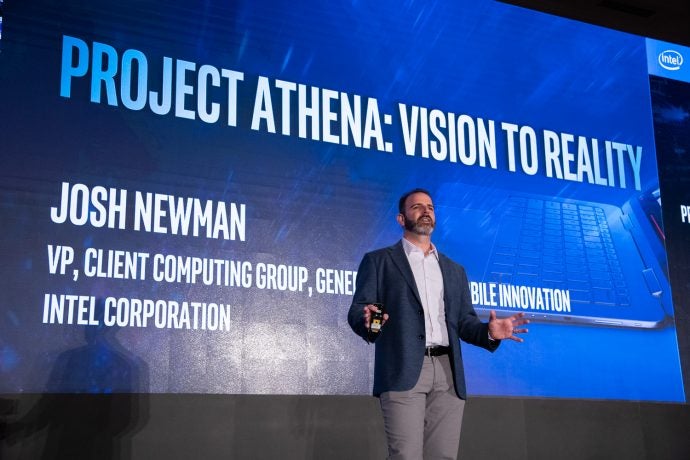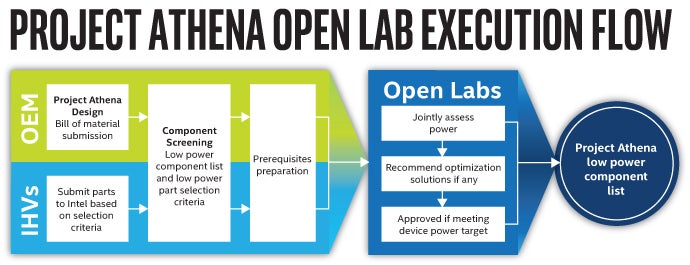Intel’s mysterious ‘Project Athena’ laptops are getting their own secretive labs

Intel has announced the creation of three new facilities to develop and define standards for ‘Project Athena’, its forthcoming reference design for next-gen laptops.
The new facilities, dubbed the ‘Project Athena Open Labs’ will be based in Taipei, Shanghai and Folsom, California. The Labs are intended to allow for potential industry partners to submit new laptop components like displays, SSDs, wireless controllers, and audio drivers for inspection by Intel’s engineers, who will then test and fine-tune everything and suggest what will and won’t pass muster for Project Athena.
Related: Intel Ice Lake
Josh Newman, Intel vice president and general manager of PC Innovation Segments, Client Computing Group said that the Open Labs are “a critical step in enabling more extensive, day-to-day collaboration with the components ecosystem to continuously raise the bar for innovation across the platform,” in a statement which did little to elaborate on what Project Athena’s actually about.
While little is known about Project Athena, the idea is that, much like Nvidia’s Max-Q designation, it will be a kind of reference design, so laptop buyers will be able to, at a glance, have an idea of the kind of experience they can expect.

Intel has said that it’s got some “predefined key experience requirements” in mind for Project Athena, and these including 5G and AI.
As with the unnamed laptop Lenovo is working on with Qualcomm, it’s likely that Project Athena laptops will see you able to stay connected on the go without relying on coffee shop Wi-Fi or a dongle – assuming that mobile networks can actually get 5G rolled out by the time these go on sale.
AI integration could see Project Athena machines keeping a note of the processes and applications you make the use of the most and when you use them, ensuring that sufficient system resources are always available, in a similar fashion to how machine learning boosts performance of phones like the Huawei P30 Pro, the iPhone XS, and anything loaded with the Snapdragon 855.
As well as this, Intel says that it wants Project Athena machines to be as power-optimised as possible. The component testing taking place in the labs won’t simply be a case of picking the most pixel dense displays or fastest SSDs, it’ll be more about how everything works together, perhaps building on the thinking behind its Whiskey Lake line of laptop CPUs.
Read more: Best laptops
In terms of size and the kinds of materials that will be used, we don’t yet know how Project Athena laptops will shape up, but we may hear more at Computex 2019, where Intel’s Gregory Bryant will deliver a keynote speech on the theme of ‘Powering Every Person’s Greatest Contribution, Together’.
What do you think of the idea of Project Athena so far? Nectar of the gods, or will it fold faster than an Athena greetings card? Let us know on Twitter @TrustedReviews.


